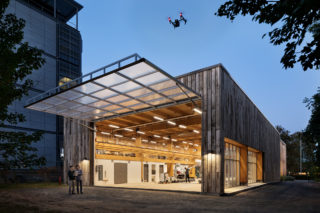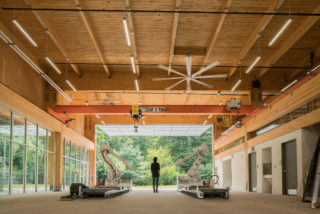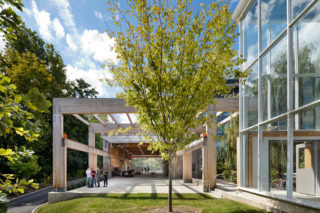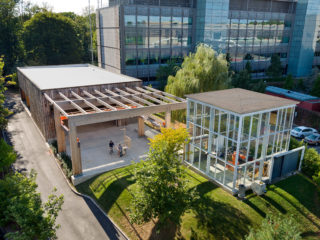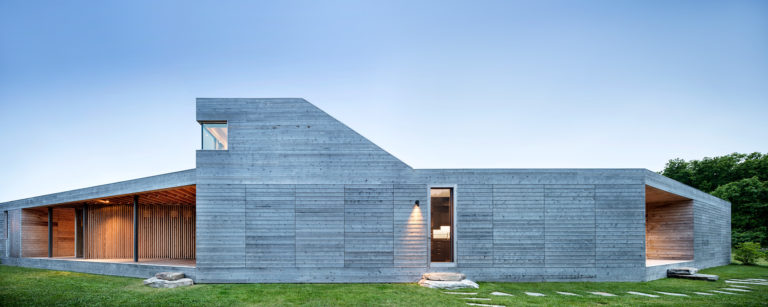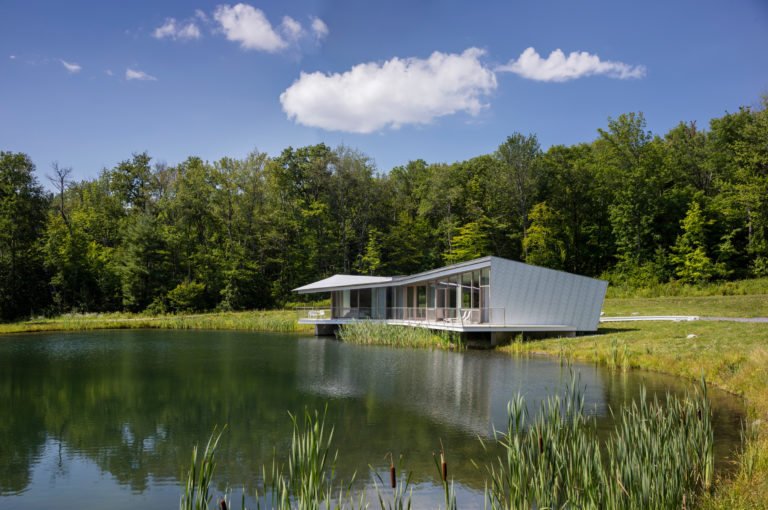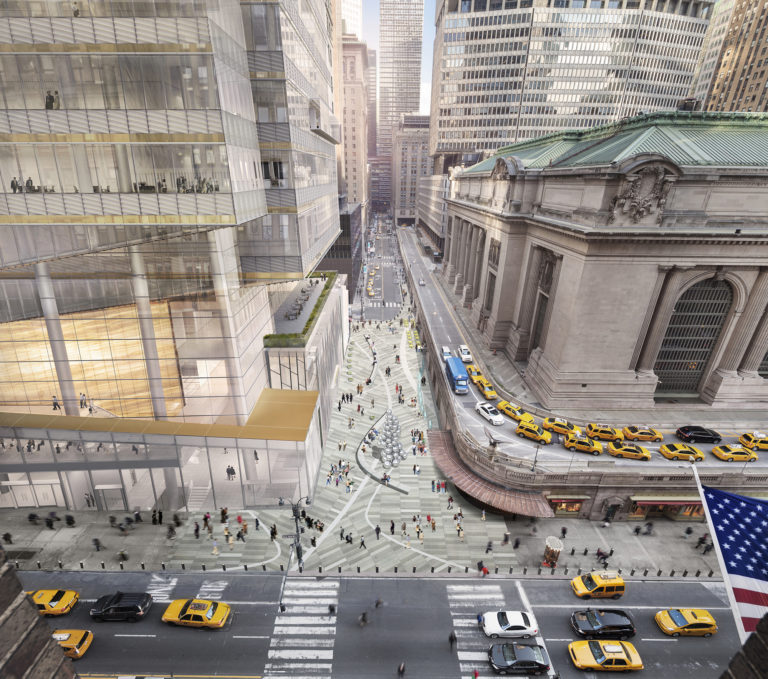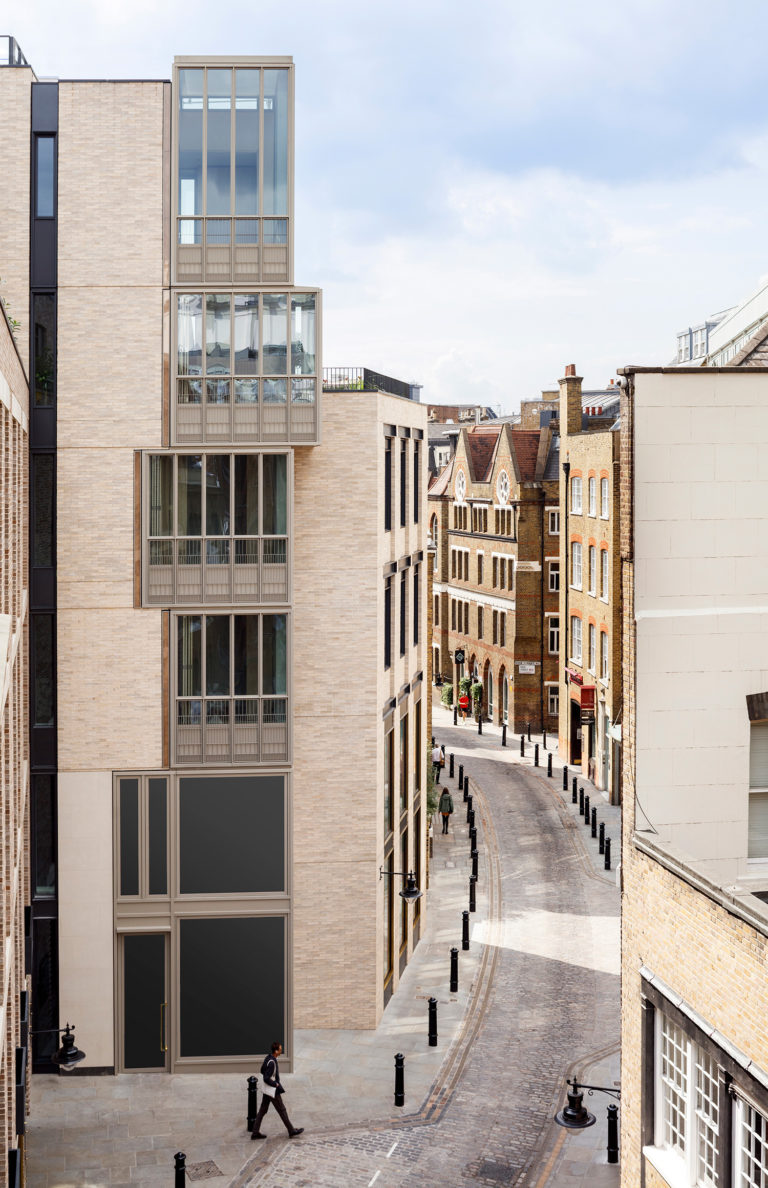Commissioned by Princeton University, the Embodied Computation Lab is a simple but futuristic building hosting research on the future of buildings. Just as biologists use an electron microscope to study organisms, architects will use this structure to study buildings and construction systems. The building is a model for new approaches to sustainability and low-carbon features. This includes using a unique heavy timber superstructure which supports a 5-ton overhead gantry crane, and a facade built from reclaimed, local scaffolding boards. The facade boards are computationally sandblasted, showcasing advances in machine learning computation and the capacity to create new types of aesthetic experience from traditional materials. The small site has a history of architectural innovation, including Buckminster Fuller’s first Geosphere. Intentionally incomplete, the building becomes an ever-evolving framework that can adapt in tandem with rapidly changing advances in architectural building technology, the building is an “open source building”—specifically designed to be rewritten and to evolve over time. The project includes a flexible plan, an “incomplete” open frame to host new envelope systems, a “quick release” facade system to allow swapping and testing of different panels, and a mechanical system with sensors and “plug-and-play” equipment and heat sources. As the pedagogy changes, the building can adapt in turn. An open, flexible layout allows for reconfiguration of classroom, workshop, robotic equipment, testing, and exhibition space. The space is conducive to cross-disciplinary research in automated construction, embedded sensors, feedback systems, geothermal wells, energy harnessing, and wall and roof prototypes.
Project facts
Location Princeton, NJ
Architect The Living
Architect of Record NK Architects
Year 2017
Project Team Axel Kilian; Big Reuse; BuroHappold Engineering; CraneBuzz; Epic Construction; Evan Eisman Studio; Faithful+Gould; Forrest Meggers; Van Note-Harvey Associates
Category Educational
AIANY Recognition
2019 AIANY Design Awards








